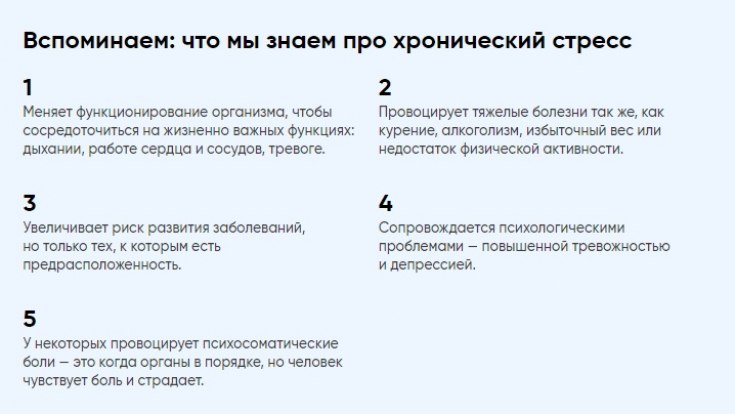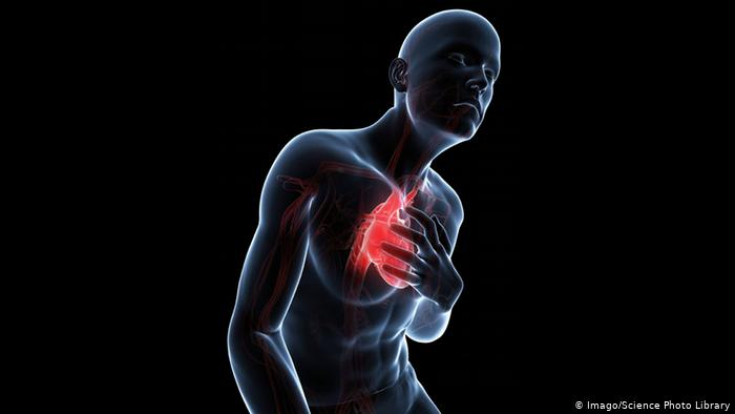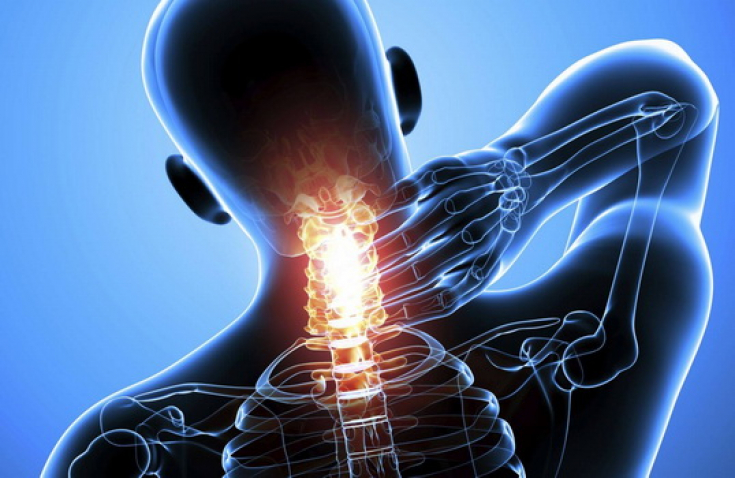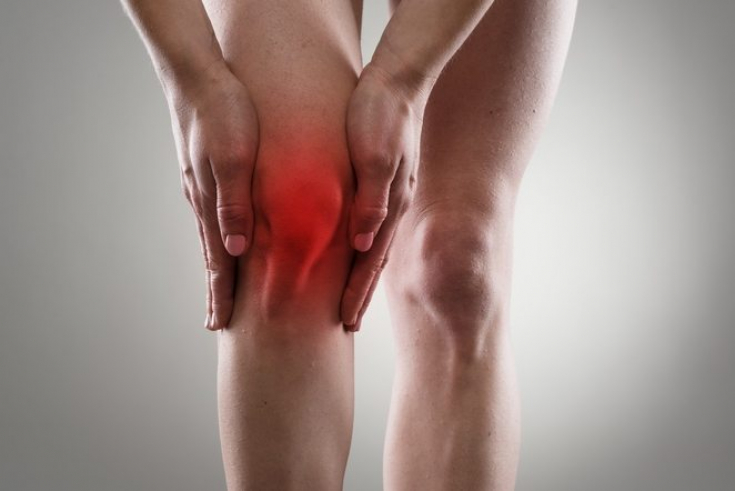Chronic Stress – the worst enemy of man: acts insidiously, stealthily, sneaking up behind his victim, so that one day he will deliver a crushing blow to the weakest place. The insidiousness of stress – also in its duplicity: after all, short-term tension – the body's first reaction to a threat – useful as it forces one to mobilize forces and confront danger.
But chronic stress can cause irreparable damage to the body. Estet-portal.com will tell you about something that many people don’t even know about: that the pain that has arisen, it’s not clear where it comes from, can be directly related to stress.
- What is the danger of chronic stress
- Tension headache and heart pain
- Problems of the gastrointestinal tract and pain in the cervical region, shoulder girdle
- Pain in the back, hips and knees
What is the danger of chronic stress
Stress has become, alas, a constant companion of modern people. Less and less often, he fulfills his good mission, because we no longer need a short-term stressful mobilization of forces to catch up with a mammoth or escape from a predatory beast. On the other hand, he is increasingly engaged in subversive activities, taking as allies the difficult economic situation, harmful neighbors, an evil boss, aggressive fellow travelers in public transport…
Stress is no longer satisfied with just sweaty palms and a rapid heartbeat of its victims, but it shoots heart, then headaches, then stomach pains.
How does the body react to a stressful situation? An increase in the level of cortisone (stress hormone) and a decrease in the level of serotonin and dopamine (hormones of good mood, happiness). A long stay in such a state is fraught with a weakening of the immune system, and this is a direct road to various diseases.
Subscribe to our page on Facebook!
Besides, people who live in constant tension are more prone to depression, various addictions (alcoholism, drug addiction…) and antisocial behavior.

Increasingly, doctors, when diagnosing a particular disease in patients, name the cause of its occurrence, stress, which can cause such pain:
- head;
- cardiac;
- gastric;
- pain in the cervical region and shoulder girdle;
- back pain;
- pain in the thighs;
- pain in the knees.
For stress-related pain, the first step is to eliminate the source of discomfort, learn to blow off steam and do more often what you please.
Tension headache and heartache
Women suffer more from this disease (according to statistics, 2 times more often than men). This is a characteristic squeezing or squeezing (like a hoop or helmet) pain on both sides of the head, as well as in the forehead and occiput. May be accompanied by increased sound and light sensitivity, problems with concentration, attentiveness, and even decreased appetite.
Subscribe to our page on Instagram!
Help:
- as with any other pain associated with stress, the first thing to do is to eliminate the source of discomfort;
- steam blowing technique (also suitable for all kinds of pain caused by stress): scream at the top of your lungs, punch a punching bag…
- relaxation, breathing, gymnastic exercises, outdoor walks;
- head and neck massage;
- warm bath;
- for prolonged depression, a neurologist should be consulted.
Heartache

In this case, the situation has 2 outcomes:
- Chronic Stress Gives the Green Light atherosclerosis, which, in turn, sooner or later leads to peripheral arterial disease, coronary heart disease, stroke;
severe shock (e.g. from a tragic event) = rapid stress = surge in blood pressure, impaired vascular tone, change in heart rate = acute heart attack.
- Stress-induced heart pain is slow-growing, not relieved by nitroglycerin, lasts for hours or even days, does not go away during sleep, and is not related to exercise. The patient may suffocate, feel tightness. In addition, there is shortness of breath, severe fatigue, feelings of anxiety, restlessness. More often the heart hurts from stress in thin people.
Prevention and assistance:
Regular physical activity helps to reduce adrenaline levels faster and improve heart function;
-
strengthening the nervous system by increasing the resources of the body:
sleep at least 7-8 hours, proper nutrition (more seafood that promotes the production of serotonin), giving up bad habits; -
hobbies help take your mind off everyday problems that often become causes of chronic stress. - Problems of the gastrointestinal tract and pain in the cervical region, shoulder girdle
Help consists of complex treatment by a gastroenterologist and a neurologist or psychotherapist.
Pain in the cervical region, shoulder girdle

Help:
gymnastics, a set of exercises for stretching muscles;
- yoga ;
- massage; outdoor walks;
- relaxing bath with aroma oils (sage, lavender).
- Pain in the back, in the hips and knees
It is clear that "with such happiness" constant stress is provided for a person.
The chain is as follows: a person tries to get rid of the emotional stress that has arisen, pushing him “to the backyard” with the power of the mind; into the realm of the unconscious. Unconscious tension causes changes in the nervous system, resulting in narrowing of the blood vessels.
Result: soft tissues (including muscles) receive less nutrition - oxygen brought by the blood. "Trash" - biochemical waste – due to reduced blood flow, they are not completely removed from the tissues. The result: muscle tension, spasms and back problems.
The main symptoms of such pain: appear suddenly or after a specific stressful event, accompanied by a feeling of fatigue, problems with sleep. The pain may also be migratory.
Help:
physiotherapy;
- gymnastics, relaxation, such as progressive relaxation according to the Jacobson method or autogenic training according to Schultz;
- sauna (but only after consultation with a specialist!);
- According to the teachings of the Chinese sages, pain in the upper back will go away if a person can find emotional support from loved ones.
Thigh pain
This kind of pain caused by stress is not common. As a rule, the joints are affected symmetrically, a person experiences not only pain, but also stiffness in the hips. Often these unpleasant symptoms are supplemented by problems in the shoulder joints. The patient experiences severe weakness, chronic fatigue, sometimes there is loss of appetite, fever.
Help:
warm bath;
- light massage;
- comfortable position during sleep (do not lie on a sore hip);
- Comfortable shoes.
- Knee pain
Specialists in psychosomatics say that those who experience pressure from others, do not feel support in life, really need the support of loved ones, are prone to knee problems.
Even in which knee the discomfort appeared, it depends on the nature of the emotions. So, the right knee often suffers from those who like to contradict, criticize others, manage and control them. Pain in the left is experienced by people who are insecure, do not dare to express their point of view and are in the grip of fear.

Help:
therapeutic gymnastics;
- stretching;
- yoga;
- tai chi;
- Lightly massage the knee with the pulp of half a lemon.
- Diagnosing muscle pain due to stress is not easy, and only a specialist can do this after a thorough examination, history taking, examination. In most cases, you also need to consult a neurologist or psychotherapist. After that, the doctor will be able to prescribe adequate medication. But it is unlikely to succeed if the patient continues to live in a state of stress. Therefore, it is very important to learn how to relax, take life easier, not accumulate resentment and remember that in a healthy body – healthy spirit.
More useful information on our channel in
Youtube






Add a comment